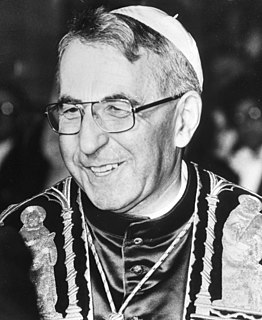A Quote by Thomas Jefferson
The moment a person forms a theory, his imagination sees in every object only the traits which favor that theory.
Related Quotes
It is easy to obtain confirmations, or verifications, for nearly every theory-if we look for confirmations. Confirmations should count only if they are the result of risky predictions... A theory which is not refutable by any conceivable event is non-scientific. Irrefutability is not a virtue of a theory (as people often think) but a vice. Every genuine test of a theory is an attempt to falsify it, or refute it.
There is the theory that all the living forms in the world have arisen from a single source which itself came from an inorganic form. This theory can be called the 'general theory of evolution,' and the evidence which supports this is not sufficiently strong to allow us to consider it as anything more than a working hypothesis.
Catastrophe Theory is-quite likely-the first coherent attempt (since Aristotelian logic) to give a theory on analogy. When narrow-minded scientists object to Catastrophe Theory that it gives no more than analogies, or metaphors, they do not realise that they are stating the proper aim of Catastrophe Theory, which is to classify all possible types of analogous situations.
I think it's often easier to theorize in the official codes of theory rather than to theorize lightly through scene, object, story, and incident in ways that keeps alive the sensual serendipities of language. This is not a question of being for or against theory, but rather of being suspicious of orthodoxies that concede, in advance, that what passes for theory must be signaled by a narrowing of diction, sentence rhythms, and sensual awareness. I'm in favor of surprise.
I have been scientifically studying the traits and dispositions of the "lower animals" (so-called,) and contrasting them with the traits and dispositions of man. I find the result profoundly humiliating to me. For it obliges me to renounce my allegiance to the Darwinian theory of the Ascent of Man from the Lower Animals; since it now seems plain to me that that theory ought to be vacated in favor of a new and truer one, this new and truer one to be named the Descent of Man from the Higher Animals.
In general, inquiry ceases when we adopt a theory. After that, we overlook whatever makes against it, and see and think, and talk and write, only in its favor. Indeed, when we have a snug, comfortable theory, to which we are much attached, they appear to us as a very mean set of facts that will not square with it.
Those who promote the politically correct theory are favored with billions from government grants and neo-Marxist environmentalist largesse, and official recognition and award. Faked and tampered data and evidence has arisen in favor of the politically correct theory. Is not man-caused, catastrophic global warming now the only theory allowed to be taught in the West?
When you look at the calculation, it's amazing that every time you try to prove or disprove time travel, you've pushed Einstein's theory to the very limits where quantum effects must dominate. That's telling us that you really need a theory of everything to resolve this question. And the only candidate is string theory.
New knowledge has led to the recognition in the theory of evolution of more than a hypothesis. It is indeed remarkable that this theory has been progressively accepted by researchers, following a series of discoveries in various fields of knowledge. The convergence, neither sought nor fabricated, of the results of work that was conducted independently is in itself a significant argument in favor of this theory.
In fact it is remarkable that this theory has had progressively greater influence on the spirit of researchers, following a series of discoveries in different scholarly disciplines. The convergence in the results of these independent studies—which was neither planned nor sought—constitutes in itself a significant argument in favor of the theory.
If the theory accurately predicts what they [scientists] see, it confirms that it's a good theory. If they see something that the theory didn't lead them to believe, that's what Thomas Kuhn calls an anomaly. The anomaly requires a revised theory - and you just keep going through the cycle, making a better theory.


































